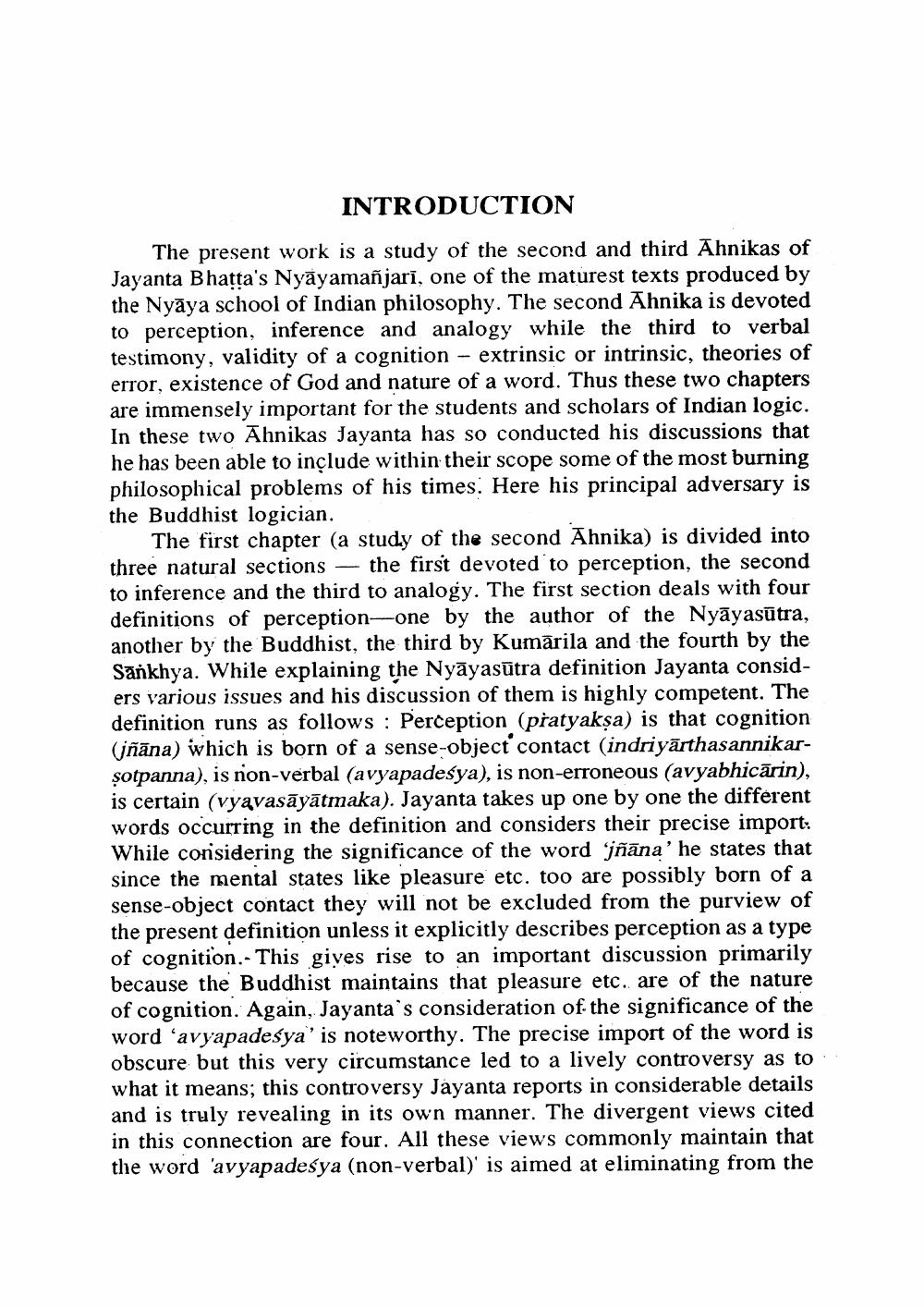Book Title: Indian Logic Part 02 Author(s): Nagin J Shah Publisher: Sanskrit Sanskriti Granthmala View full book textPage 8
________________ INTRODUCTION The present work is a study of the second and third Ahnikas of Jayanta Bhatta's Nyāyamañjarī, one of the maturest texts produced by the Nyāya school of Indian philosophy. The second Ahnika is devoted to perception, inference and analogy while the third to verbal testimony, validity of a cognition - extrinsic or intrinsic, theories of error, existence of God and nature of a word. Thus these two chapters are immensely important for the students and scholars of Indian logic. In these two Ahnikas Jayanta has so conducted his discussions that he has been able to include within their scope some of the most burning philosophical problems of his times. Here his principal adversary is the Buddhist logician. The first chapter (a study of the second Ahnika) is divided into three natural sections — the first devoted to perception, the second to inference and the third to analogy. The first section deals with four definitions of perception-one by the author of the Nyāyasūtra, another by the Buddhist, the third by Kumārila and the fourth by the Sankhya. While explaining the Nyāyasūtra definition Jayanta considers various issues and his discussion of them is highly competent. The definition runs as follows : Perception (pratyakşa) is that cognition (jñāna) which is born of a sense-object contact (indriyārthasannikarşotpanna), is non-verbal (avyapadesya), is non-erroneous (avyabhicārin), is certain (vyavasāyātmaka). Jayanta takes up one by one the different words occurring in the definition and considers their precise import: While considering the significance of the word jñāna' he states that since the mental states like pleasure etc. too are possibly born of a sense-object contact they will not be excluded from the purview of the present definition unless it explicitly describes perception as a type of cognition.- This gives rise to an important discussion primarily because the Buddhist maintains that pleasure etc. are of the nature of cognition. Again, Jayanta's consideration of the significance of the word ‘avyapadeśya' is noteworthy. The precise import of the word is obscure but this very circumstance led to a lively controversy as to what it means; this controversy Jayanta reports in considerable details and is truly revealing in its own manner. The divergent views cited in this connection are four. All these views commonly maintain that the word 'avyapadesya (non-verbal)' is aimed at eliminating from thePage Navigation
1 ... 6 7 8 9 10 11 12 13 14 15 16 17 18 19 20 21 22 23 24 25 26 27 28 29 30 31 32 33 34 35 36 37 38 39 40 41 42 43 44 45 46 47 48 49 50 51 52 53 54 55 56 57 58 59 60 61 62 63 64 65 66 67 68 69 70 71 72 73 74 75 76 77 78 79 80 81 82 ... 236
